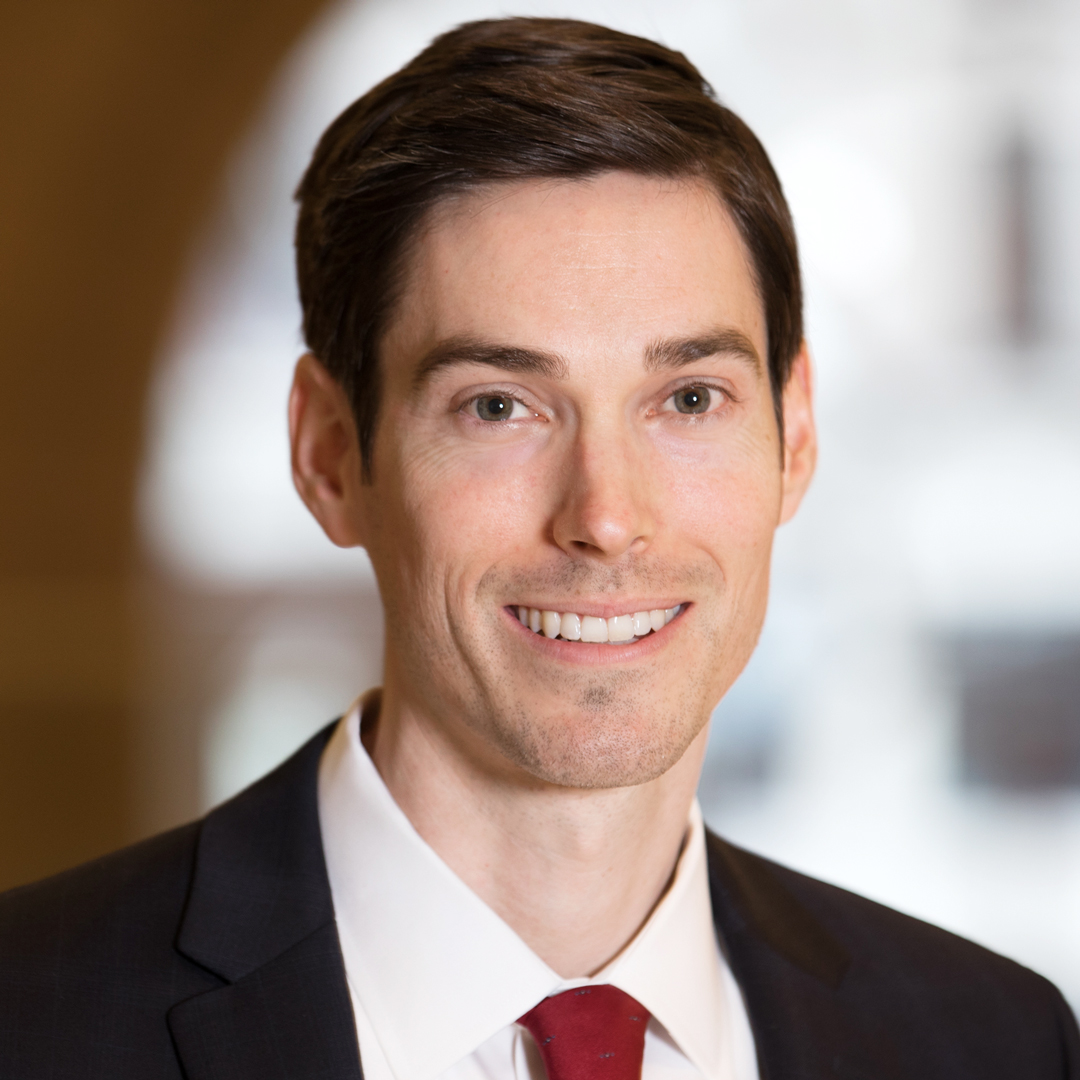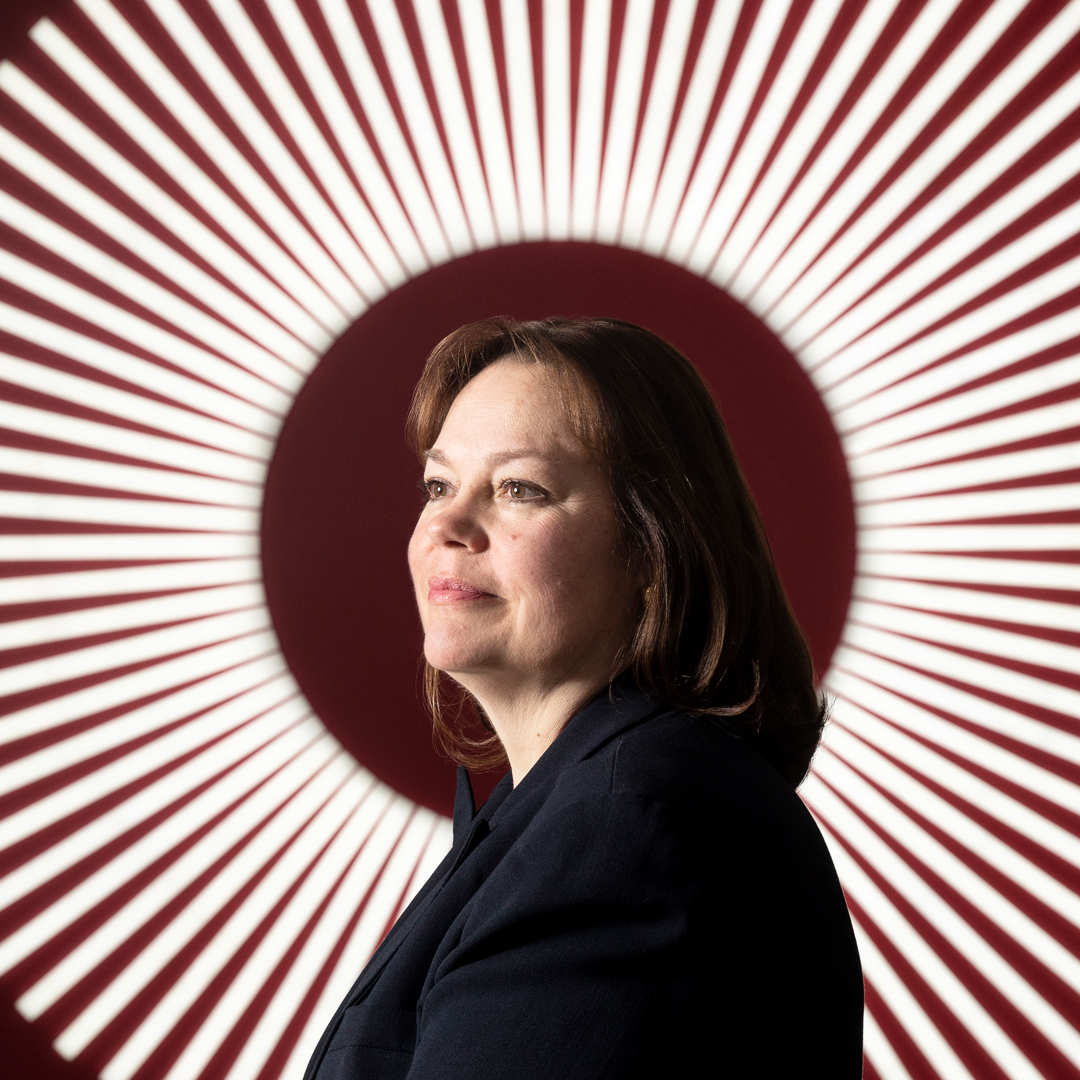When Chad Hanson was a boy, his family raised cattle in Hugo, Minnesota. As the oldest of four children, he had plenty of chores. Looking back, he says that work also taught him about business.
Every year, his father lent him money to buy one of the farm’s yearling cows. Hanson would help raise it and then sell it the following spring. “Dad always had me sign a contract and would charge me an interest rate. Whatever money was left went into the bank or a mutual fund,” Hanson explains. This started when he was about eleven and lasted through his senior year of high school. “The first time I dipped into that money was to buy my first computer,” he says.
Not surprisingly, Hanson thought about becoming a veterinarian and was on a prevet track at North Dakota State University (NDSU), where he earned a degree in a new field: biotechnology. From NDSU he went on to get a PhD in cell and developmental biology at the University of Minnesota, where he was awarded a National Institutes of Health molecular biophysics predoctoral fellowship. He then decided to pursue a law degree, with plans to focus on environmental law or intellectual property.
In 1998, after graduating from the University of Minnesota Law School, he joined Fish & Richardson, focusing on patent litigation and prosecution. “Two of the partners there had clients in the biotechnology and medical space. The work was interesting, and I got to interact with inventors and learn about new technologies,” Hanson says.
Seven years later, Hanson was called by a headhunter about a job at Medtronic, the world’s largest medical device company. He joined the in-house litigation team, focusing primarily on intellectual property, biology, medicine, and technology. “It is a great environment for someone like me with a keen interest in science,” he says.
One of the things that guides Hanson’s work is Medtronic’s mission statement. The six-part mandate was established in 1960 and states that the company’s purpose is to “alleviate pain, restore health, and extend life.”
“I keep those goals in mind. It helps direct where I spend time and resources,” Hanson explains. “The mission also guides us when deciding what not to do. I try to keep us out of situations where we cannot make unique and worthy contributions.”
Another thing that Hanson enjoys about working at Medtronic is the opportunity to impact the staffing of litigation matters. “It is no secret that the ability of someone to move up in a law firm depends on getting opportunities and building client relationships,” Hanson says. “I’ve never heard anyone say that there are too many women or minorities in the partner ranks. So, to the extent I can help promote a more diverse workforce within my world of influence, I aim to get it done.”
One of the things he tries to do is to identify opportunities for outside counsel to do something they haven’t done before. For some, it may be taking a deposition. For others, it may be stand-up work before a district or appellate court, or, sometimes, being the first or second chair for a trial.
“Some might worry about the risk of giving important tasks to people who haven’t done them before, but someone has to give them a chance,” he says. “I’ve found that the people who are given these chances work extremely hard. Not only do they want to succeed—they tend to go the extra mile to make sure they don’t let you down.”
Hanson also understands how empowering people at work could impact his own family one day. “The bottom line is this: I have an eighteen-year-old daughter. If I can break down a barrier here or there, perhaps she won’t have to face some of the struggles I’ve witnessed other women face,” he says.
He also partners with outside firms to control litigation costs. “It’s all about project management, which is not traditionally taught in law school,” he says. “Law firms used to say they would do x, charge you y, and then send you a bill. That kind of one-sided conversation doesn’t work anymore. The client and the law firm need to work on that number together. It is more nuanced than simply capping or fixing spend.”
This forward-thinking approach to his work has garnered praise for Hanson from his business partners.
“Chad is both an outstanding lawyer and excellent case leader,” says Munir Meghjee, Robins Kaplan LLP’s chairman of the board. “Coupled with his deep background in life science, he repeatedly delivers laser-sharp guidance to Medtronic in its continued pursuit of cutting-edge life-extending technologies.”
Hanson thinks it works best to base the budget on specific tasks and build project costs from the bottom up.
“We know that attorneys on the other side of litigation matters will likely throw in unexpected things, but we must get better at building that into the budget. We should approach litigation budgets more like weather forecasting; we should recognize there is a range of potential outcomes.”
This kind of insight is another result of Hanson’s upbringing. “I was raised to be practical, and I’m a scientist by nature,” he explains. ”I’m always looking for the better way to do something. I ask our outside firms to analyze what we learn from one case so it can be applied to the next. Both sides should participate in the process, strive for efficiency and success, and be dedicated to continuous improvement.”
The Medtronic Mission
- To alleviate pain, restore health, and extend life
- To direct our growth in the areas of biomedical engineering where we display maximum strength and ability
- To strive without reserve for the greatest possible reliability and quality in our products
- To make a fair profit
- To recognize the personal worth of employees
- To maintain good citizenship
Kirkland & Ellis: Chad brings pragmatism, decisiveness, and confidence to our team, qualities that kept us focused and costs down. Chad insisted on diverse teams that created opportunities for junior attorneys. Several of our attorneys owe their first trial witness or argument to Chad’s confidence in his team and commitment to growing talent.


